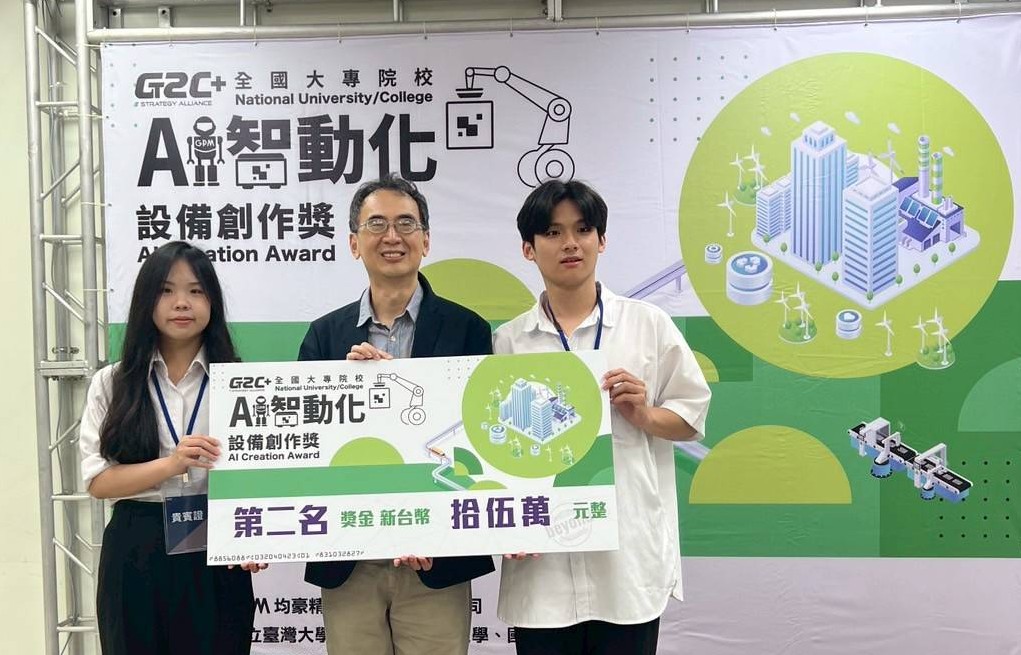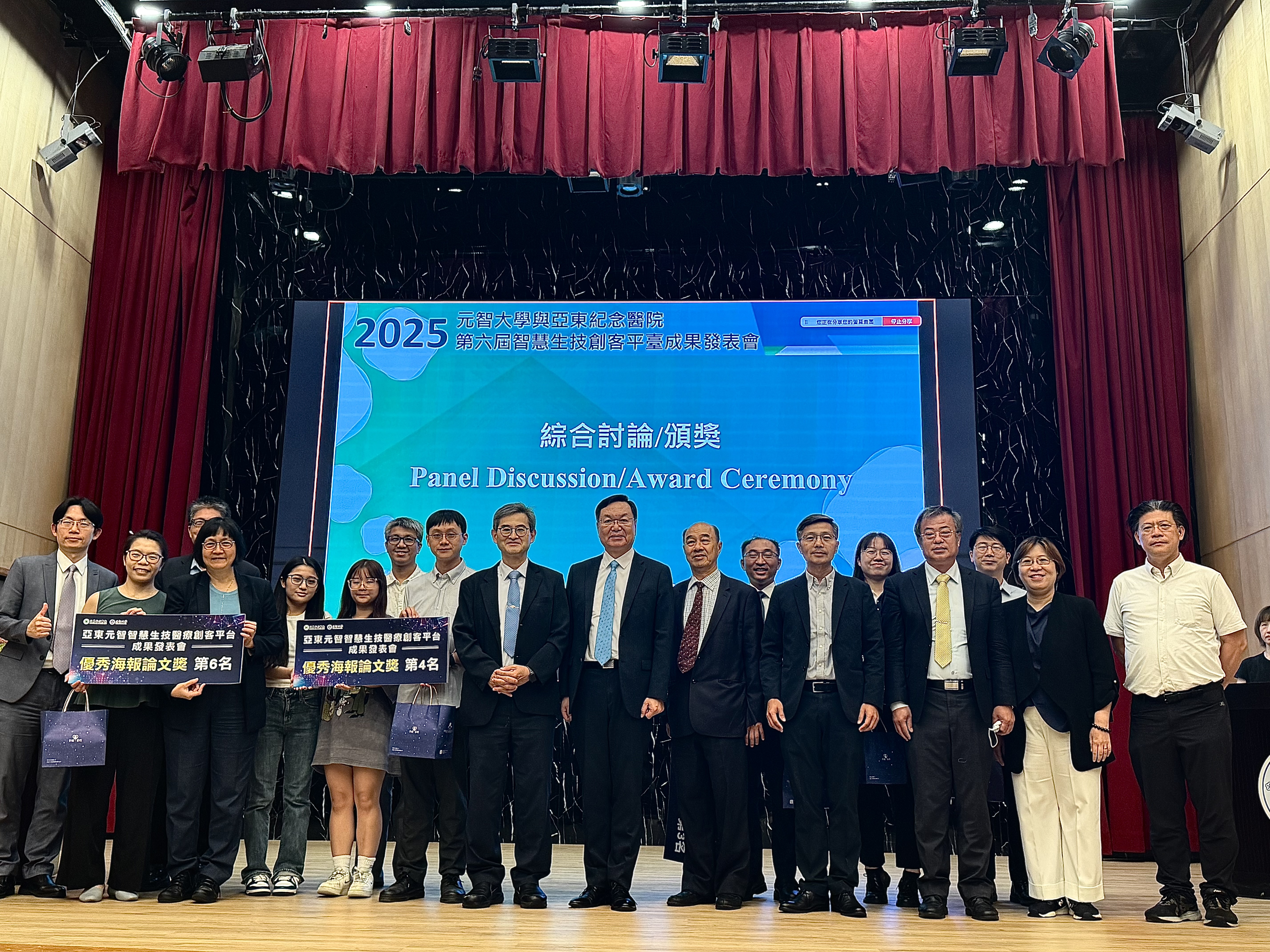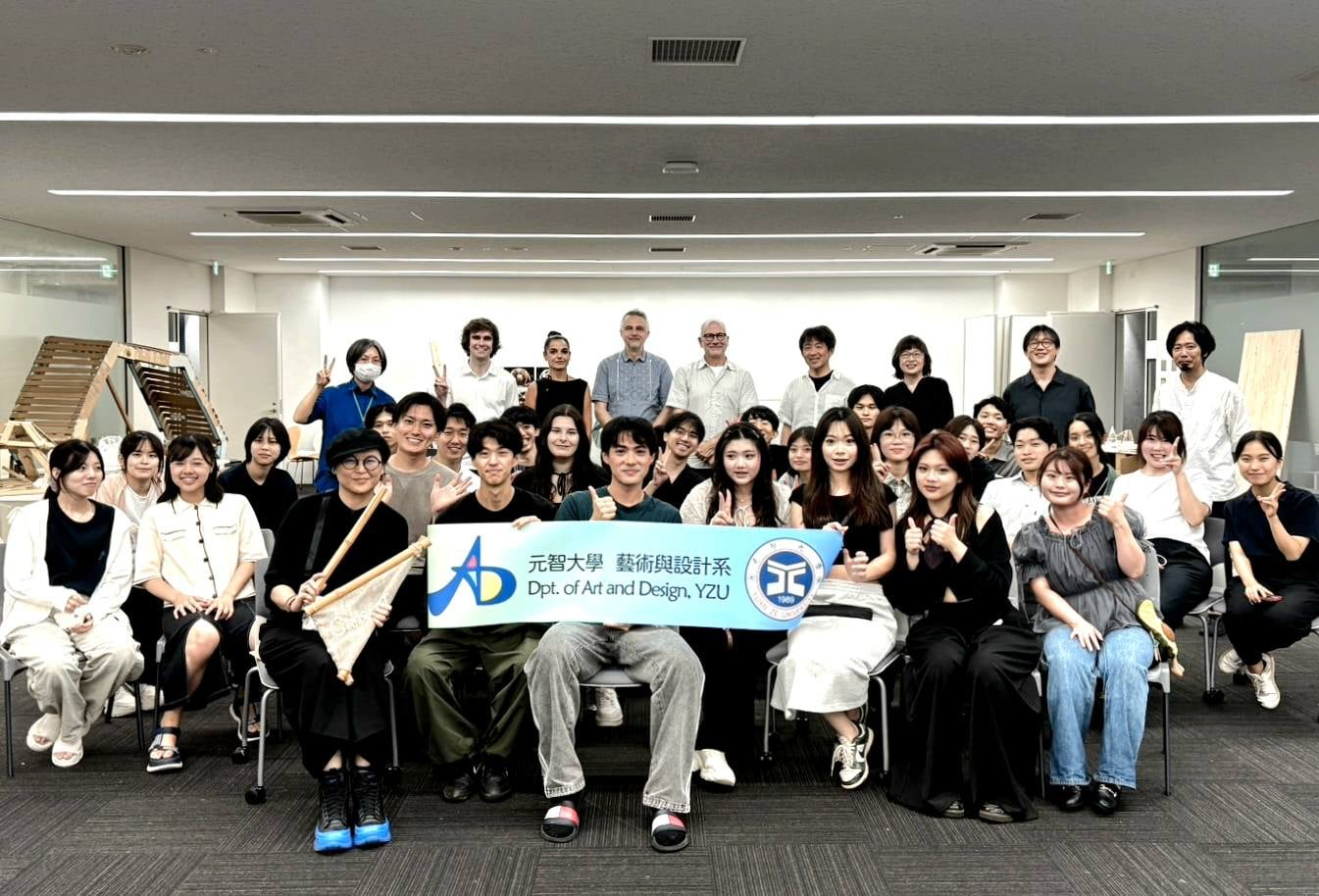Yuan Ze University once again achieved remarkable success in the National AI Automation Competition. A team of five students from the Department of Information Management—Ping-Lin Lee, Yi-Wen Liao, Kai-Ning Yu, Wei-Shan Chen, and Kai-Hung Chen—guided by Associate Professor Jui-Chien Hsieh, competed in the finals of the 14th National AI Automation Equipment Innovation Contest for University Students.
With their innovative project titled “Revolutionizing Diagnosis in Remote Areas: Generative AI for White Blood Cell Classification,” the team earned second place and was awarded NT$150,000 in prize money, demonstrating both exceptional technical competence and a strong sense of social responsibility.
The Yuan Ze team integrated AI with medical applications to address the issue of limited medical resources in rural areas. They proposed an innovative solution using generative AI to assist in the classification of white blood cells. By embedding the AI model into mobile devices, their system supported personnel in rural clinics, regional testing labs, and small-scale medical institutions in classifying 14 types of white blood cell smear images—offering diagnostic capabilities comparable to those in major hospitals.
The project showcased a high level of technical maturity and strong potential for real-world implementation, earning unanimous praise from the judging panel. Professor Jui-Chien Hsieh remarked that the achievement represented not only a technical breakthrough but also the students’ deep understanding of and response to social issues. He expressed hope that AI could become a truly inclusive force to improve healthcare conditions in underserved areas.
Award recipients Ping-Lin Lee and Yi-Wen Liao shared that they felt deeply honored and surprised to stand out in a competition primarily dominated by graduate students. They reflected on the teamwork, brainstorming sessions, and constant discussions with their advisor that led to their success.
This year’s competition attracted 69 elite teams from universities across Taiwan. In the first stage, 51 teams were eliminated, and only 18 teams advanced to the finals. The final round selected one first place, one second place, one third place, and three honorable mentions. These top six teams were all invited to showcase their work at the 2025 Automation Taipei Robot Expo, with full accommodation for advisors and students covered by the organizers.
Yuan Ze University had long been committed to research and education in AI and intelligent applications, encouraging students to apply their knowledge to solve real-world problems. This award not only recognized the dedication of both faculty and students but also reaffirmed Yuan Ze’s leading position in AI-driven innovation.
 English
English  正體中文
正體中文 



